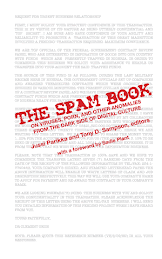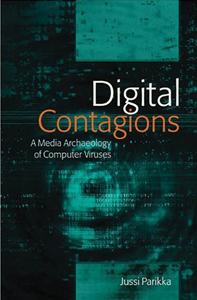
"The brain is the screen", announced Gilles Deleuze some decades ago and summed up - beforehand - a range of things to come. The enthusiasm for the brain whether in terms of screen cultures (a range of films that play with mind, brain, and memory, and what Thomas Elsaesser has called the mind-game genre) or in new kinds of media interfaces e.g. for gaming is paralleled by a range of cultural and media theory looking into the notion of brain as a key metaphor, or node, for understanding contemporary media culture. Far from an earlier enthusiasm for the mind as separated from the body, and as an emblematic figure for the oh-so-much-hated-by-cultural-studies Cartesian worldview, the more recent enthusiasms is as much oriented towards brain as the fleshy epicentre of nerves, and sensation. The brain, too, is fleshy, vitalistic, and full of mattering matter, intensity, and in the world.
This is paradoxically why Christopher Nolan's Inception is such a disappointment. Despite fitting in perfectly with a range of screen culture examples from past years such as his own Memento to Eternal Sunshine of the Spotless Mind, or Doll House , The Matrix, etc., it does not bring anything new to the genre, or an elaborated, innovative, or even exciting take on the centrality of the cognitive for current media culture. To be honest, with a topic like this, can you fail? Memory and the cognitive can be so interestingly be connected to key contemporary processes of cultural production and capitalism, even to an extent that has been branded as cognitive capitalism. Not only knowledge, affects, and such as an endproduct that can be packaged (thanks Edison, thanks copyright laws) and sold as a discrete unit of cultural industries, but the whole process of production that is more akin to an ecology of seemingly immaterial, cognitive, or emotional values that can be harnessed into value-creation and raise important issues concerning the current "creative precariat" is where these themes concerning feelings, memory and the self are debated and become crucial for the political economy.
Without going into too much detail (as I recognize my shortcomings as a film critic...) I would summarize Nolan's attempt as itself a bit pale, a bit short of exciting. Despite the references to Kubrick, which I personally do not understand at all, Nolan's film is exactly not daring sci-fi when it comes to dealing with the brain or the self. The cliched guiding idea of getting caught in a dream at the expense of reality does not become transported into a more powerful and political "don't get stuck in someone else's dream" but only a bit sentimental storyline. The parallels between political/financial power and power over the mind remain very vague, and the attempt to multiply dimensions of reality (or dream) itself a bit boring. Whereas some critics have at least hailed the visuals as stunning (I beg to differ), what is bothering that it seems to be acceptable to recycle such outdated notions of the mind and the brain in supposedly futuristic settings. Metaphors of depth, architecture, and the subconscious remain mostly vague perhaps Freudian allusions, but on a level that is as insightful as I would expect The Sun's summary of psychoanalysis to be.
Indeed, I admit after reading some more positive writings and after discussions that there would have been potential for much more. The theme of "contagious ideas", or more interestingly "emotion contagion" (that is of key scientific interest for social media cultures). The labyrinthine architectural formations in which urban structures, the psyche and various realities intertwine in a Borgesian or Dickian (as in Philip K. Dick) manner are a strong cinematic trope of contemporary digital culture. Writers such as Peter Krapp have pointed out how film itself has acted as "a medium of aberrations of memory" from such avantgarde works as Chris Marker's La Jetée to more recent science-fictions of The Terminator series and even Men in Black, and indeed its interesting to map how hallucinated, and often psychoid realities are being framed increasingly in such settings which do not take multiple realities only as delusional but at the core of power and control.
However, despite for a second trying to be optimistic and positive I have to return to my original feeling about the film; if such supposedly informed publications as the Wired are even asking if Inception is the scifi heavy-weight of the year, I must myself be in the wrong reality now.








No comments:
Post a Comment